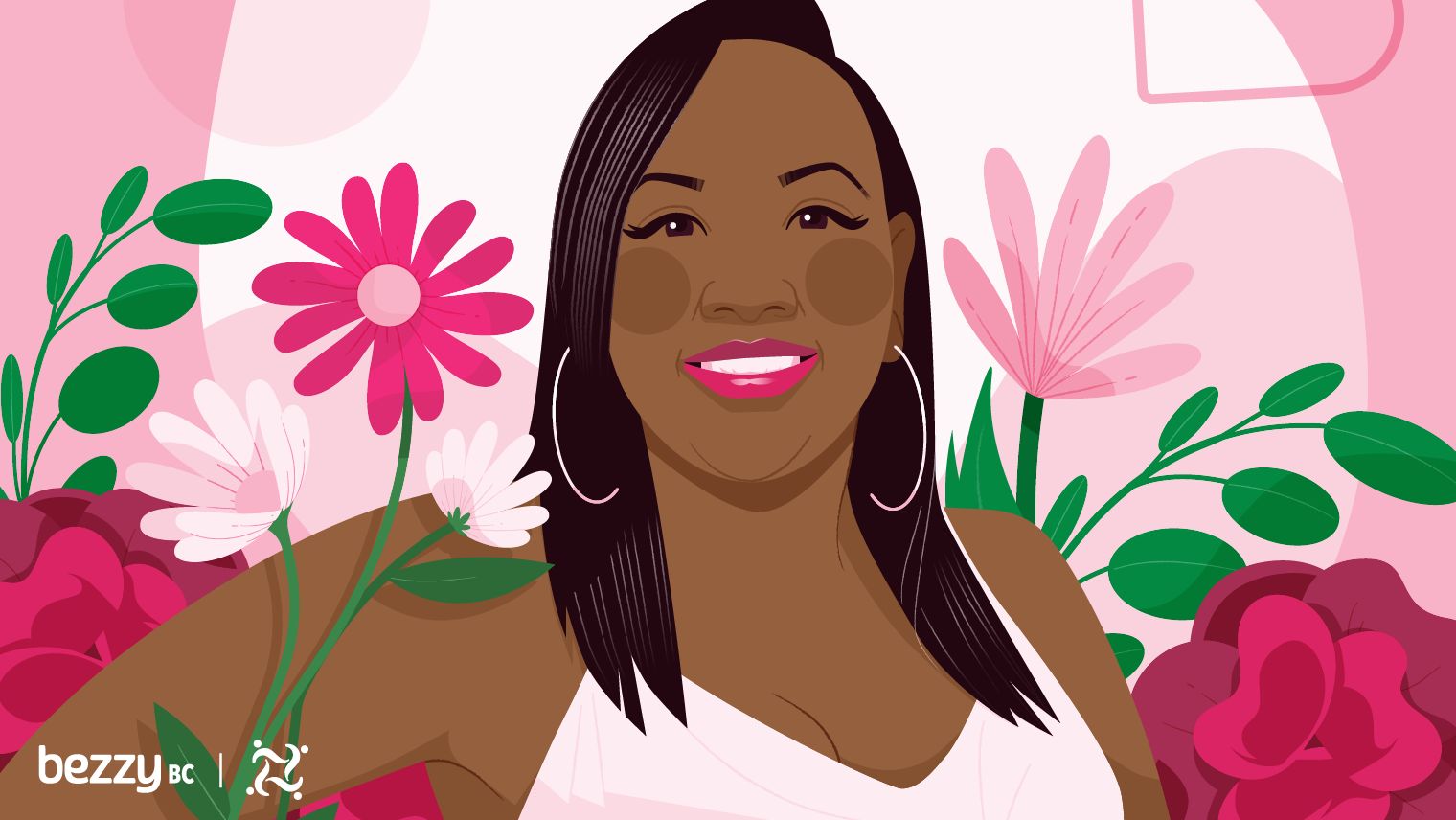How Cancer Lit a Fire Under Me — and Helped Launch For the Breast of Us
October 09, 2023
Content created for the Bezzy community and sponsored by our partners. Learn More

I let that fire lead me to advocacy, so we don’t keep losing Black and brown women who could have lived longer lives.
Before my diagnosis of stage 2 breast cancer in 2015 at the age of 35, I had worked in healthcare for 12 years. I knew how to navigate the health system and how to make sure I was getting what I needed every step of the way. But I was surprised to find out that wasn’t true for everyone, particularly for Black and brown women.
Most notably, I had a friend named Cristina whom I met while going through treatment, and she was diagnosed with stage 3. We completed treatment at the same time and less than a year later, she was diagnosed with metastatic cancer and, sadly, passed away — only a year after her original diagnosis.
When she died, it lit a fire under me. Why are Black and brown women not being researched the way they should be? We know they’re diagnosed at younger ages and with more aggressive cancer. Cristina was diagnosed with triple-negative breast cancer, one of the most aggressive kinds.
Yet there’s a lack of research into how it affects Black and brown women specifically. Why isn’t anyone looking into this? I realized I needed to step up and let that fire lead me to advocacy, so we don’t keep losing women who could have lived longer lives.


Building our community
Being diagnosed at a young age, I really wanted to find other women like me. Naturally, you want to connect and share your story and build a community where you can offer support and get support in return. I knew there were young Black and brown women out there because I’d connected with some. But it was frustrating that there wasn’t a centralized place where we could find each other.
When you’re going through treatment, you’re already doing so much research and adjusting to a new normal. You don’t have time or energy to spend hours searching for other women who will understand what you’re going through.
Why are Black and brown women not being researched the way they should be? We know they’re diagnosed at younger ages and with more aggressive cancer.
That’s how the organization For the Breast of Us began to evolve. I met Jasmine Souers on Instagram, and we connected in person at a summit in March 2019. When we started talking, we both said: Hey, there’s obviously an epidemic here in terms of younger brown and Black women and breast cancer. What can we do to share our stories? How can we spark some change here?
It took a lot of long nights and long days to put together an organization that could make a difference. But we got the word out, and right away we were flooded with stories from women across the country. That says something about the need for this organization. Women were so eager to connect and to be heard.
Initially, we launched a site with about 50 stories in May 2019, and it’s grown and evolved since then.
Spreading the advocacy flame
Since For the Breast of Us first launched, so much has happened to spread the mission and get more women involved. We have a private Facebook group that’s specifically for women of color, and currently over 3,000 women are in that group. Most are in the United States, but there are also members from other countries.
We also started an ambassador program with about 20 women who were diagnosed at different stages across the country. They’re helping to expand this work and the organization, and they’re part of our effort to spread advocacy training.
There are still so many women whose stories are not being told.
One thing that surprised me after we started was hearing about how many women went to their doctors and complained about certain symptoms, and they weren’t being heard. That’s appalling. Early detection is key, of course, and anything that causes a delay gives the cancer time to progress.
And yet, these women were delayed in getting a diagnosis because they weren’t being taken seriously. Even after they were diagnosed, some weren’t offered different treatments or surgeries and only learned about them through their own research.
What keeps me going
Hearing these stories keeps the fire burning in me to train women to be advocates and to share their stories with each other. There’s such power in connection.
In the beginning, my role was to help women navigate the healthcare system and live their best lives regardless of their circumstances. I’m still doing that, but now I also have a drive to uplift the voices of women in this community.
There are still so many whose stories are not being told. We all need to hear them, respect them, and lift them up. It’s the only way we’re going to get the change and recognition we need.
This is When You See Us, a series in partnership with our friends at For the Breast of Us, highlighting the experiences of Women of Color in the breast cancer community. Together, we believe that hearing the stories of women who look like you and can relate to your experiences has the power to foster community, resiliency, and hope.
If you’re a Woman of Color living with breast cancer, you can join the conversation by becoming a Bezzy BC member, navigating to the For the Breast of Us community forum, and introducing yourself.
Fact checked on October 09, 2023


Like the story? React, bookmark, or share below:
Have thoughts or suggestions about this article? Email us at article-feedback@bezzy.com.